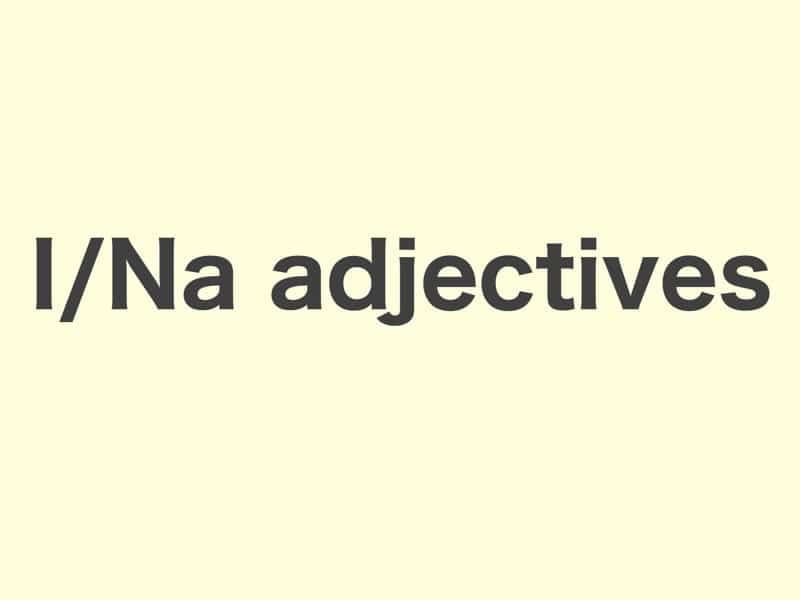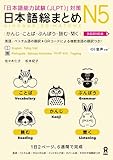In Japanese, adjectives play an essential role in describing people, places, things, and experiences. There are two main types of adjectives: i-adjectives and na-adjectives. Each type has its own unique conjugation rules, which allow you to express different meanings such as past, present, positive, and negative. In this guide, we’ll go over how to conjugate i-adjectives and na-adjectives, covering all the key forms you need to know to describe things naturally in Japanese!
JLPT Textbook Recommendations
I-Adjective
| Present | Present negative | Past | Past negative | |
| I-adjective | いです (i desu) | くないです (kunai desu) | かったです (katta desu) | くなかったです (kunakatta desu) |
| Delicious | おいしいです (oishii desu) | おいしくないです (oishi kunai desu) | おいしかったです (oishi katta desu) | おいしくなかったです (oishi kunakatta desu) |
| Cold | さむいです (samui desu) | さむくないです (samukunai desu) | さむかったです (samukatta desu) | さむくなかったです (samukunakatta desu) |
| Good | いいです (ii desu) | よくないです (yokunai desu) | よかったです (yokatta desu) | よくなかったです (yokunakatta desu) |
Sentence
- ねこはかわいいです。(neko wa kawaii desu)
The cat is cute. - きょうは、さむかったです。(kyō wa, samukatta desu)
It was cold today.
Question
- これはおいしいですか。 (kore wa oishii desuka.)
Is it delicious?
→ はい、おいしいです。 (hai, oishii desu.)
Yes, it is.
→ いいえ、おいしくないです。 (iie, oishi kunai desu.)
No, it’s not.
How to use it with a noun?
とうきょうえきはおおきいです。(Tokyo eki wa ookii desu)
Tokyo Station is big.
In this sentence, “おおきい” (ōkii) is an i-adjective that directly describes Tokyo Station. You are simply stating that Tokyo Station itself is big, without emphasizing it as a station.
とうきょうえきはおおきいえきです。(Tokyo eki wa ookii eki desu)
Tokyo Station is a big station.
In the phrase “おおきいえき” (ōkii eki), “おおきい” (ōkii) is an i-adjective modifying the noun “えき” (eki), which means “station.” Here, you are specifically stating that it is a big station, emphasizing both the size and the type of place being described.
Na-Adjective
| Present | Present negative | Past | Past negative | |
| Na-adjective | です (desu) | じゃありません (ja arimasen) | でした (deshita) | じゃありませんでした (ja arimasen deshita) |
| Cheerful | げんきです (genki desu) | げんきじゃありません (genki ja arimasen) | げんきでした (genki deshita) | げんきじゃありませんでした (genki ja arimasen deshita) |
| Beautiful | きれいです (kirei desu) | きれいじゃありません (kirei ja arimasen) | きれいでした (kirei deshita) | きれいじゃありませんでした (kirei ja arimasen deshita) |
Sentence
- とうきょうはにぎやかです。(Tōkyō wa nigiyaka desu)
Tokyo is lively/busy. - きょうとはきれいでした。(Kyoto wa kirei deshita)
Kyoto was beautiful.
Question
- げんきですか。 (genki desuka.)
Are you fine?
→ はい、げんきです。(hai, genki desu)
Yes, I am fine.
→ いいえ、げんきじゃありません。(iie, genki ja arimasen.)
No, I am not fine.
How to use it with a noun?
きょうとはきれいです。(Kyoto wa kirei desu)
Kyoto is beautiful.
In this case, “きれい” (kirei) is a na-adjective used directly as a predicate without a noun following it. You are simply stating that Kyoto itself is beautiful, but you are not specifying it as a city.
きょうとはきれいなまちです。(Kyoto wa kirei na machi desu)
Kyoto is a beautiful city.
In this sentence, “きれいな” (kirei na) is a na-adjective modifying the noun “まち” (machi), meaning “city.” Here, you are specifically stating that Kyoto is a city, and that city is beautiful.




コメント